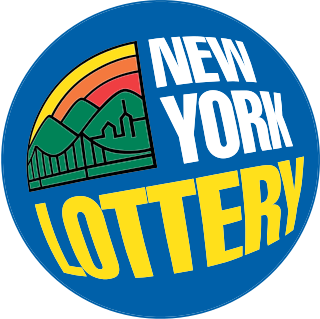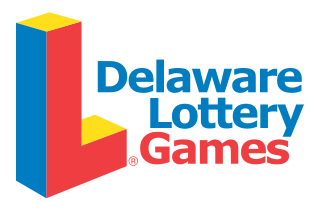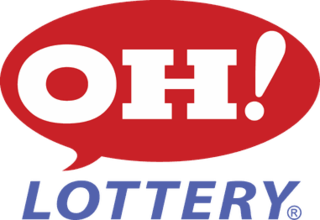
The Georgia Lottery Corporation, known as the Georgia Lottery, is overseen by the government of Georgia, United States. Headquartered in Atlanta, the lottery takes in over US$1 billion yearly. By law, half of the money goes to prizes, one-third to education, and the remainder to operating and marketing the lottery. The education money funds the HOPE Scholarship, and has become a successful model for other lotteries, including the South Carolina Education Lottery.

The Pennsylvania Lottery is operated by the Commonwealth of Pennsylvania. The Lottery was created by the Pennsylvania General Assembly on August 26, 1971; two months later, Henry Kaplan was appointed as its first executive director. The Pennsylvania Lottery sold its first tickets on March 7, 1972 and drew its first numbers on March 15, 1972.

The California State Lottery began in October 1985 after voters authorized it in Proposition 37, the California State Lottery Act of 1984. It offers a range of games including number draws, scratchcards and a mock horse race. The earnings provide supplementary funding for public education.
Lotteries in Australia include various lottery related products licensed by The Lottery Corporation, The Lottery Office and Lotterywest Australian lottery companies. Lotteries operators are licensed at a state or territory level, and include both state government-owned, not-for-profit and private sector companies. Most major Lotteries have now moved into the online marketplace.

The New Zealand Lotteries Commission, trading as Lotto New Zealand since 2013, is a Crown entity that operates nationwide lotteries in New Zealand. It was established in 1987 and operates under the Gambling Act 2003. Its oldest and most popular game is Lotto, which boasts a top prize pool of NZ$4 million. Other games include the four-draws-daily Keno, the daily Bullseye, and a variety of scratchcards and online games known as Instant Kiwi. Instant Kiwi may only be played by persons 18 years of age or older, under the Gambling Act 2003. Powerball and Lotto Strike are optional extras with every Lotto ticket.

The New York Lottery is the state-operated lottery in the US state of New York that began in 1967. As part of the New York State Gaming Commission, it provides revenue for public education and is based in Schenectady.
The Maine Lottery is run by the government of Maine. It is a member of the Multi-State Lottery Association (MUSL), whose flagship game is Powerball. It was founded in 1974 after being approved through a voter referendum.

The Connecticut Lottery Corporation, also called the CT Lottery, is the official lottery in Connecticut. It was created in 1971 by then-Gov. Thomas Meskill, who signed Public Act No. 865. The first tickets were sold on February 15, 1972. The Connecticut Lottery offers several in-house drawing games; Connecticut also participates in Mega Millions and Powerball; each are played in 44 states, the District of Columbia, and the U.S. Virgin Islands.
The New Jersey Lottery is run by the U.S. state of New Jersey. Its In-house draw games are Pick-3, Pick-4, Jersey Cash 5, Pick-6, Quick Draw, and Cash Pop. Its multi-jurisdictional draw games are Cash4Life, Mega Millions, and Powerball. The Lottery also sells Fast Play and scratch-off tickets. The New Jersey Lottery is headquartered at One Lawrence Park Complex in Lawrence Township, Mercer County.

The Delaware Lottery is run by the government of Delaware. Its creation was authorized by the state legislature on May 31, 1974. Its "traditional" games include Play 3, Play 4, Multi-Win Lotto, Lucky For Life, Lotto America, Mega Millions, and Powerball. Delaware also offers Keno, sports betting, and video lottery.
The Michigan Lottery was initiated under the authority of Public Act 239 in 1972, and collects funds to support Michigan’s public school system.
The Missouri Lottery is the state-run lottery in Missouri. It is a charter member of the Multi-State Lottery Association (MUSL). As of 2022, the lottery offers Powerball, Mega Millions, Cash4Life, Lotto, Show Me Cash, Pick 4, Pick 3, Cash Pop, Club Keno, scratchers, and pull-tabs. The minimum age to buy a ticket is 18.

The Nebraska Lottery is run by the government of Nebraska. It was established by the state legislature in 1993. It is a member of the Multi-State Lottery Association (MUSL). Its games include Mega Millions, Powerball, 2by2, Nebraska Pick 5, Pick 3, and MyDaY. The minimum age to purchase Nebraska Lottery tickets is 19. Elsewhere in the United States, the minimum age to buy lottery tickets is either 18 or 21.

The Ohio Lottery is a state lottery run by the Ohio Lottery Commission. Its games consist of scratch tickets; Pick 3, Pick 4, Pick 5 ; Rolling Cash 5, Classic Lotto, Keno, Lucky for Life, Mega Millions, and Powerball.

The Rhode Island Lottery is run by the government of Rhode Island. The modern form of the Rhode Island Lottery was inaugurated in 1974, following a constitutional amendment passed in 1973. It is a charter member of the Multi-State Lottery Association (MUSL). Rhode Island Lottery games include Mega Millions, Powerball, Wild Money, Keno, and scratch tickets. The Rhode Island Lottery also offers online lottery games and oversees and regulates video lottery as well as sports betting.
The Wisconsin Lottery is run by the Wisconsin Department of Revenue and was authorized in 1988 by the state legislature. It is a member of the Multi-State Lottery Association (MUSL). Its games consist of Mega Millions, Powerball, Megabucks, Supercash!, Badger 5, Pick 3, Pick 4, All or Nothing, and scratch games. Since its founding, it has generated $4.6 billion for property tax relief for state residents.

The Colorado Lottery is run by the state government of Colorado. It is a member of the Multi-State Lottery Association(MUSL).

The Kentucky Lottery, began in April 1989 after a November 1988 vote in which over 60% of voters cast ballots in favor of it. On April 4, 1989, ticket sales began at over 5,000 licensed retailers with over $5 million in sales on the first day. Kentucky Lottery players had two Scratch-off games to choose from, including, Beginner's Luck ($1) and Kentucky Derby Dreamstakes ($2).
The Virginia Lottery is an independent agency of the Commonwealth of Virginia. It was created in 1987 when Virginians voted in a statewide referendum in favor of a state lottery. The first ticket was sold on September 20, 1988. All profits from Virginia Lottery ticket sales go to K-12 public education, as required by Virginia's constitution. In Fiscal Year 2023, the Lottery's profits totaled more than $867.4 million, accounting for approximately 10 percent of school funding in Virginia. That brought total Lottery profits in Virginia to more than $15.5 billion.












